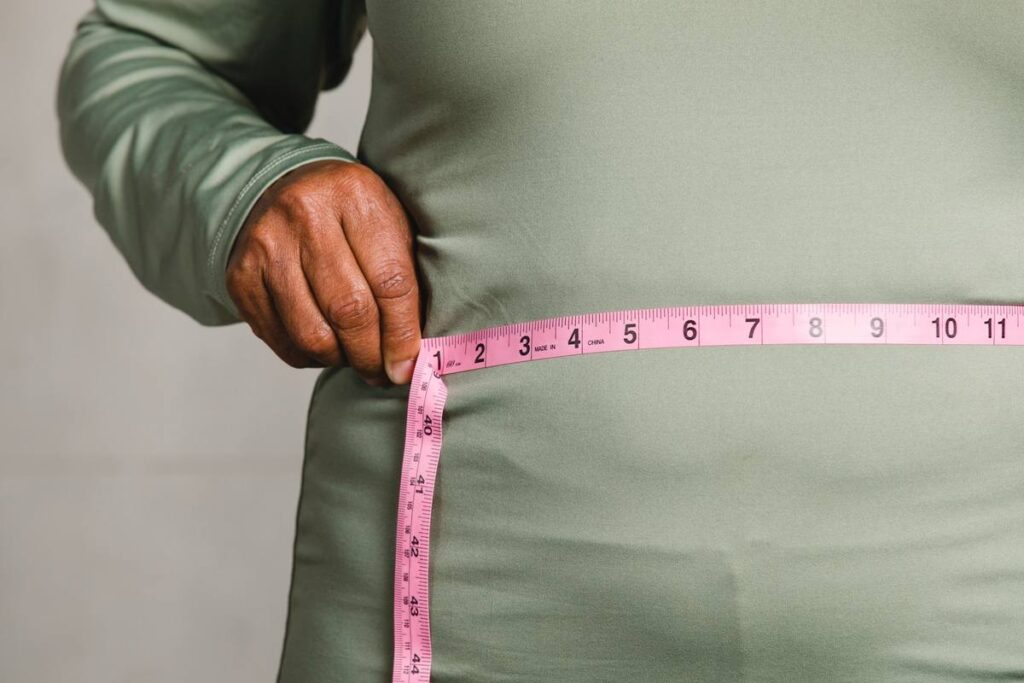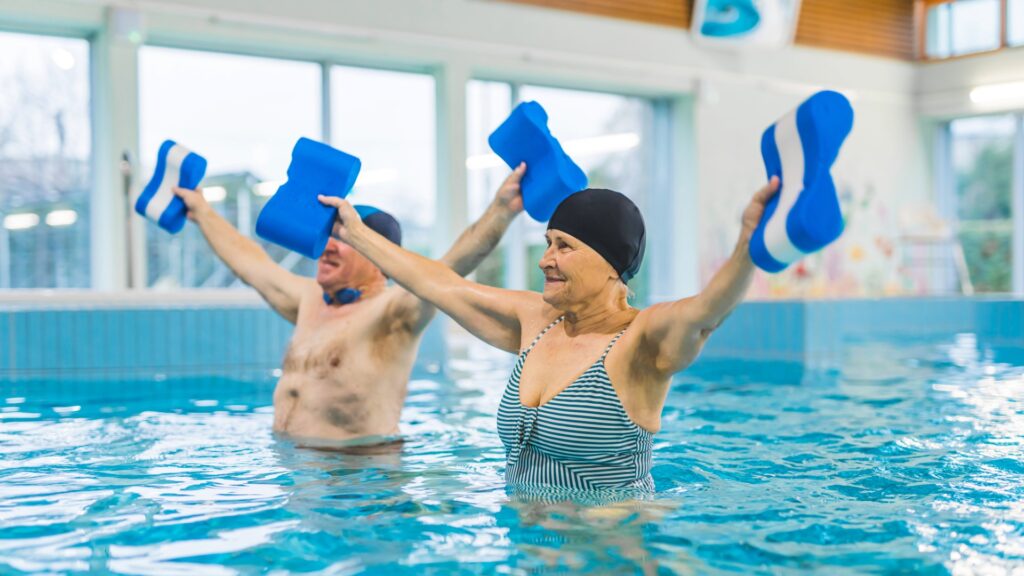Obesity
Overweight and obesity are characterised by excess body weight and excessive balance of energy intake vs energy expenditure with Body Mass Index (BMI) commonly used as the criterion to define these conditions. A BMI over 25 is classified as overweight, whereas obesity is measured as a BMI over 30. The formula is BMI = kg/m2 where kg is a person’s weight in kilograms and m2 is their height in metres squared.
Being overweight and obese is linked to numerous chronic diseases, including CVD, diabetes, many forms of cancer, and numerous musculoskeletal problems.
Home / Obesity

How does exercise help with obesity?
Diet and exercise both play a part in helping a person to achieve a healthy weight. A weight loss of 5% to 10% provides significant health benefits, and these benefits are more likely to be sustained through the maintenance of weight loss and/or participation in habitual physical activity.
For adults who are overweight or obese an individualised approach to increasing physical activity is best achieved through exercise supervised by a professional.
Tertiary-trained exercise professionals, such as Accredited Exercise Physiologists are best suited to assist those with obesity, by prescribing and delivering exercise consistent with best practice.
Things to remember
Individuals who are overweight or obese may have chronic muscle or joint pain and have a reduced range of motion. They could also be at risk of developing lower back pain or arthritis. This needs to be considered before engaging in physical activity, however should not discourage anyone from exercising right for their uniqueness.
Accredited Exercise Physiologists are qualified and experienced in exercise prescription for those living with chronic conditions. It is recommended to consult one of these Exercise Professionals for an individual assessment and exercise program.


What type of exercise is best for obesity?
Primary mode of exercises should include a combination of aerobic and resistance training. The format of these session should be based on exercising at the right intensity and duration to maximise energy expenditure during exercise.
Exercise Right recommends exercises such as water activities (e.g. hydrotherapy), sitting aerobics and stationary cycling.
Frequently asked questions
What is an Accredited Exercise Physiologist (AEP)?
An Accredited Exercise Physiologist (AEP) is an allied health professional that prescribes individualised exercise therapy to help people manage their chronic conditions, disabilities, long-term injuries and so much more. They are the most qualified professionals in Australia when it comes to the prescription safe and effective of exercise therapy.
Who should see an AEP?
Anyone who wants to move safely and improve their health can benefit. From chronic conditions to injury recovery, or simply wanting advice on how to exercise right, an exercise physiologist is the expert to see.
Is an AEP covered by Medicare or private health insurance?
Yes. As allied health professionals, exercise physiology services are recognised in government health funding including Medicare, National Disability Insurance Scheme (NDIS) and Department of Veteran’s Affairs (DVA), workers’ compensation and private health insurers. It’s important that you check with your provider as coverage can vary.
Where can I find an AEP?
Use recognised directories like Exercise & Sports Science Australia (ESSA), ask your GP or look for allied health clinics with AEP credentials.
You may also like

How long does it actually take to see results from exercise?
Whether you want to build muscle or increase aerobic endurance, everyone is looking for RESULTS. If you’re curious about how your body responds to exercise (and how long it takes to see changes), Accredited Exercise Physiologist, Harry Beresford, dives into this topic below. Just remember that to get results, you need to do ‘regular physical […]

Exercise at every size: the role of physical activity for obesity
Obesity levels in Australia have reached pandemic level proportions, affecting 31.3% of the population. For a lot of people who struggle with their weight, exercise (especially in a gym) can be very daunting. But there are *so many* great reasons to be physically active if you’re overweight or obese, and most of them have nothing […]

